|
|
CHAPTER X.
WARS OF THE OJIBWAYS WITH THE IROQUOIS AND O-DUG-AM-EES, OR FOXES.
Warfare between the Ojibways and Iroquois--Ojibways,
Pottawatumies, Ottaways, and Wyandots join in alliance against the Iroquois,
to open the route to Quebec--Iroquois driven from Canada--Tradition of the
last battle fought between the Ojibways and Iroquois--The French favor the
Algic tribes against their enemies--War between the Ojibways and O-dug-am-ees
or Foxes--Tradition of the old hunter--He with his family are attacked by
the Foxes--Indian fight--Revenge of the old hunter--Foxes are driven from
the Wisconsin--They retire to the Mississippi and ask to be incorporated
with the O-sau-kies.
Besides carrying on an
inveterate and exterminating Warfare with the powerful Dakotas and cruel
Foxes, the Ojibways were obliged to keep up their ancient feud with the
Naudoways, or Iroquois, towards the east. For a time the powerful
confederation of Six Nations prevailed against the Algic tribes who had
taken possession of the great northern chain of lakes, mostly through their
having been first supplied with fire-arms by the Dutch and British of New
York.
They became possessed of the country bordering the Ottaway
River, and effectually barred their enemies from communication with the
French who resided on the St. Lawrence. Their anxiety to open the road to
the white traders, in order to procure firearms and their much-coveted
commodities, induced the Ojibways, Ottaways, Pottawatumies, Osaukies, and
Wyandots to enter into a firm alliance. They sent their united forces
against the Iroquois, and fighting severe and bloody battles, they
eventually forced them to retire from Canada.
From this time, now upwards of five generations ago, the
route from Lake Superior to the French settlement on the St. Lawrence became
comparatively free and open, though the trading parties were often waylaid
by the ambushed warriors of the Iroquois on the Ottaway River.
The warlike, confederated tribes whom the French early
designated with the name of Iroquois, gave not up their long contest with
the allied Algics, without a severe and protracted struggle. They often
collected their forces, and marching westward, their hardy warriors became
familiar with the shores of Lake Huron, the banks of the Ste. Marie, and
often even procured scalps on the shores of Lake Superior. At one time the
Ottaways were forced to retire from the Straits of Mackinaw, and the islands
of Lake Huron, through fear of these redoubtable eastern warriors. The last
important battle between the Ojibways and the Iroquois, took place about one
hundred years ago at a point on Lake Superior, a short distance above its
outlet, which has to this day retained the name of Point Iroquois. The Sault
Ste. Marie Ojibways are probably better acquainted with the details of this
occurrence than those from whom I have obtained the account which is here
given, as they are locally interested in the tradition.
Ke-che-wash-keenh or Great Buffalo, chief of La Pointe,
briefly gives the following version of the affair:--
"The Ojibways, one time collected a war party on the shores of the Great
Lake, which proceeded eastward against their old enemies the Naud-o-ways. On
their road to the country of these people, they one evening encamped on a
point of the lake shore a short distance above Bow-e-ting (Ste. Marie). They
had lighted their fires for the night and commenced cooking their suppers,
when the sounds of distant yelling and laughter came indistinctly to their
ever-listening ears. The noise appeared to come from the other side of the
point, immediately opposite the spot where they had encamped. Scouts were
sent to reconnoitre the noisy party, whom they supposed to be traders
proceeding up the lake to trade with their people.
"These scouts soon returned on a run, and informed their
party that they had seen a large war party of Naud-o-ways, who were
encamped, drinking firewater, and carousing with perfect carelessness, and
apparently with every sense of security. The Ojibways quickly extinguished
their blazing fires, and making their usual preparations for a desperate
fight, they noiselessly approached and surrounded the encampment of their
boisterous and drunken enemies. They silently awaited the moment when nearly
all had drunk themselves insensible, and the remainder had fallen asleep,
for the war whistle to sound the onset. They attacked them with great fury,
and it is said that but few of the Naud-o-ways escaped the Ojibways'
tomahawk and scalping knife on this bloody occasion."
The "Six Nations" never after this made incursions into
the country of the Lake Superior Ojibways, and from this occurrence may be
dated the ending of the long and fierce warfare which these two people had
been waging against one another (Perrot gives a history of this conflict.
See Memoirs edited by Tailhan, pp. 97, 98.--E. D. N.)
The French always favoredthe Ojibway and other Algic
tribes in their war-with the New York tribes, and for this, they often
suffered at the hands of the Iroquois, who waylaid their canoes laden with
merchandise on the route up the Great Chain of Lakes.
For providing the Ojibways also with fire-arms, and
through this causing them to become too powerful for their western enemies,
the French incurred the dislike and hatred of the Dakota and O-dug-am-ee
tribes, who on one occasion made their deep enmity evident, by making war on
them and attacking their fort at Wow-e-yat-ton-ong or Detroit, which was
only saved by the combined efforts of the O-dah-wahs and Ojibways under the
leadership of the renowned Pontiac, who had already at this period, 1746,
commenced to carve out the renown which he eventually attained.
It is shortly after this period that the O-dug-am-ees
again incurred the vengeance of the Ojibways, who a second time attacked and
swept away their villages. It has been stated that on their being driven
from the headwaters of the St. Croix and Chippeway Rivers, they had retired
to the Wisconsin and into the country bordering on Lake Michigan. The
tradition of their second invasion by the Ojibways, is given as follows by
the old Indian story tellers:--
An old Ojibway hunter with his wife, two sons, and their families, were one
winter hunting about the head lakes of the Wisconsin River. As they searched
for game they moved from camp to camp by slow and easy stages, and being of
a fearless disposition, they formed the southern vanguard of numerous other
families similarly employed and following slowly in their wake.
They had arrived in the vicinity of the usual hunting
grounds of the O-dug-am-ees, and now at every camp they formed a barrier of
logs and bushes to shield them from a sudden attack of their enemies. One
morning early, one of the sons of the old hunter, as usual, put on his
moccasins, tied his blanket around his body, and, shouldering his gun,
started on his day's hunt. It was snowing heavily, and the rest of the
family remained at home. The hunter had been gone but a short time when he
returned, and, without saying a word, sat down in his usual place, and
commenced whittling his bullets so that they could be easily and quickly
thrown into Iris gun. When he had finished this work, he took his gun, drew
out the load, and carefully cleansed it. He then sharpened his knife, and
placed his war-club and spear ready at hand for immediate use.
The old hunter watched the singular preparations of his
silent son, and suspecting that he had discovered signs of an enemy, arose,
and saying that he would go and cut a few sticks of the red willow to smoke,
he left the lodge to go and see with his own and more experienced eyes, what
were the signs of danger. He had proceeded but a few steps in the adjacent
forest, when he discovered a strange track in which there were but a few
flakes of the fast falling snow. His Indian sagacity told him that it was
the foot-print of an O-dug-am-ee, and returning to the wigwam, he proposed
to his family an immediate flight to some neighboring camp of their friends.
The silent son now spoke, and told his father that flight had become
impracticable, for they were entirely surrounded by a very large war-party
of their enemies. "All we can do," said he, "is to prepare for death; for I
have seen the trail of the O-dug-am-ee warriors, and it is deep-beaten and
wide; many feet have trodden it."
Determined to defend their women and children to the last
gasp, the Ojibway hunters cut down a few more trees and strengthened the
barrier around their wigwam. Night gradually came and covered everything in
deep darkness and gloom, yet still was the expected attack deferred. The
imitated hooting of the owl, and howling of wolves which resounded from
different parts of the forest, but too plainly told the hunters that the
O-dug-am-ee wolves had surrounded their camp, and only waited the first dawn
of day (the Indian's favorite hour), to make the attack.
The old hunter being anxious to save a portion of his
kindred, took two girls--his grandchildren--each by the hand and silently
led them some distance into the surrounding woods, amid the darkness, and
informing them the direction they were to go--to be judged by the wind, and
fast falling flakes of snow, he bade them save their lives by flight and
inform their people of his fate.
The old man then turned to his lodge, and he listened
anxiously for the yell that would denote the discovery and death of "the
little birds, which he had let out to fly away." That expected yell came
not, and the old man became satisfied that his two grandchildren were safe.
At the first dawn of morning, the O-dug-am-ees commenced
the attack with loud and thrilling war whoops. The Ojibways defended
themselves bravely, and as long as their ammunition lasted, they kept their
numerous assailants at bay, and sent many of their more hardy warriors to
the land of Spirits; but as soon as their powder gave out they ceased
firing, the O-dug-am-ees rushed into their camp, and leaping over their
barrier of logs and brush, the work of death and scalping commenced. The
Ojibways died not without a desperate struggle, for even the grandmother of
the family cut down an enemy with her axe before she received the death
stroke. All perished but the old hunter, who, during the last brave struggle
of his two sons, miraculously escaped through the dense ranks of his eager
foes, entirely naked and covered with blood from numerous wounds.
He had not proceeded far before he met a small party of
his friends, who had been informed of the desperate situation of his camp,
by the two girls whom he had caused to escape during the previous night. At
the head of this party, though almost dead with fatigue and loss of blood,
the old man returned, and found his wigwam in ashes. The O-dug-am-ee wolves
had already done their work and departed, and the bodies of his murdered
kindred scalped, dismembered, cut and hashed into a hundred pieces, lay
strewn about on the blood-stained snow.
At this horrid spectacle the Ojibway party, though feeble
in numbers, recklessly followed the return trail of the perpetrators
depending for help, should they enter into a premature engagement with them,
upon the different camps of their tribe, to whom runners had been sent
during the night. They had not proceeded far on the deep-beaten trail of
their enemies, when they beheld one of their number who had been left in the
rear, walking leisurely along; perfectly deaf and unconscious to the
approach of the avenging Ojibways, he fell an easy victim under their
tomahawks.
They still ran on, till hearing a distant halloo, which
was repeated nearer and nearer, they hid themselves in the deep snow near
the trail.
The O-dug-am-ees having stopped to smoke, and missing one
of their number, first hallooed to him, and on his not answering, they sent
two of their young men to go back and bring him up. The ambushed Ojibways
dispatched these two men, and as they too, did not return, the impatient
O-dug-am-ees sent three more of their party to go and see what kept them,
and they likewise met the same fate as their fellows. Becoming yet more
impatient for the return of their companions, a large number of the
O-dug-am-ees arose and ran back in search of them. On these, the ambushed
Ojibways were obliged to fire, and immediately retreating, a running fight
commenced. The whole force of their enemies now hearing the firing of guns,
joined their fellows, and the Ojibways would soon have been annihilated, had
not a large party of their friends, guided by the noise of the fight,
arrived to their rescue. This timely reinforcement wisely ambushed
themselves behind the trees near the trail, and as the O-dug-am-ees were
eagerly following the retreating party, the hidden Ojibways fell on them
with great fury, and in the first surprise succeeded in killing a large
number, and they eventually forced the remainder to retreat and fly back to
their villages with the black paint of mourning on their faces.
Though having partially revenged the death of his kindred
in this fight, yet the old Ojibway hunter was not satisfied. For two years
he secluded himself from his people, and accompanied only by his two
grandchildren, he made his hunts where beaver was to be found in the
greatest plenty. During this time he laid by the fruits of his solitary
hunts, and having collected sufficient for his purposes, he loaded a large
canoe with large packs of beaver skins, and made a journey to Detroit, which
was then a grand depot for the fur trade, and contained a garrison of French
soldiers.
Blacking his face with coal, placing ashes on his head,
and gashing his body with his knife, causing himself to be covered with
blood as a sign of deep mourning and affliction, he presented himself before
his "French father," told him the tale of his wrongs, and presenting his
packs of rich beaver, he asked for help to revenge himself against his foes.
The O-dug-am-ees had always evinced a bad feeling toward
the French, and on several occasions they had plundered and murdered their
traders; They were a restless and troublesome tribe, continually embroiled
in mischief, and a short time previous they had attempted with the
assistance of the Dakotas and O-saug-ees to take the French fort at Detroit.
The appeal of the old Ojibway hunter, therefore, was listened to by willing
ears. Ammunition and guns were freely given him, and a number of Frenchmen
were promised to aid him in his intended invasion of the O-dug-am-ee
country. The old hunter, being supplied with the necessary means, easily
raised a large war party of his people, and being joined by his French
allies, he proceeded to the hunting grounds of his enemies, and after severe
fighting destroyed two of the principal O-dug-am-ee villages, and drove the
remnants of this obnoxious tribe from the shores of Lake Michigan, and the
Wisconsin River.
Enfeebled in numbers, the O-dug-am-ees retired westward to
the Mississippi River, and fearing a total extinguishment of their national
fire, it is at this time that they first joined the lodges of the Osaugees,
and requested to be incorporated into that tribe. Their petition was denied,
though the Osaugees allowed them to remain in their villages till they had
in some degree regained, by a long term of quiet and peace, their former
strength and numbers.
go to chapter 11
1
- 2
- 3
- 4
- 5
- 6
- 7
- 8
- 9
- 10
11
- 12
- 13
- 14
- 15
- 16
- 17
- 18
- 19
- 20
21
- 22
- 23
- 24
- 25 - 26 - 27 - 28 - 29 - 30
White Eagle Soaring: Dream Dancer of the 7th Fire
Index of DreamCatchers However
You Spell DreamCatcher
However you've spelled Dream Catcher, these REAL Dream Catchers are
natural magic from Creator Direct (Manidoog).

See
Real Dream Catchers' links
This is a crazy world. What can be
done? Amazingly, we have been mislead. We have been taught that we can
control government by voting. The founder of the Rothschild dynasty, Mayer
Amschel Bauer, told the secret of controlling the government of a nation
over 200 years ago. He said, "Permit me to issue and control the money of
a nation and I care not who makes its laws." Get the picture? Your freedom
hinges first on the nation's banks and money system. That's why we
advocate using the
Liberty Dollar, to understand the
monetary and banking system. Freedom is connected with
Debt Elimination for each individual. Not
only does this end personal debt, it places the people first in line as
creditors to the National Debt ahead of the banks. They don't wish for you
to know this. It has to do with recognizing WHO you really are in
A New Beginning: A Practical Course in Miracles.
You CAN
take
back your power and
stop volunteering to pay taxes to the collection
agency for the BEAST. You can take back that which is yours,
always has been yours and use it to pay off your debts. And you can send
others to these pages to discover what you are discovering.
Dream Catchers
Art and Culture of the Seventh Fire
Dream-Catchers are wisdom-teachers. If you learn to
listen, they will take YOU on a journey of wonder and revelations, too.
Illusions are stripped away and new ways are revealed. The real
Dream-Catchers of the Seventh Fire are
waiting for you. Come into the realm of Real Dream-Catchers. See with eyes of spirit,
listen with your heart and soar with the White Eagle.
Disclaimer: The
statements on www.real-dream-catchers.com have not been evaluated by the FDA.
These dream catchers are not intended to diagnose nor treat nor cure any
disease or illness. Neither are dreamcatchers, the dream catcher, nor any
dreamcatcher.
In accordance with Title 17
U.S.C. Section 107, this material is distributed without profit to those who
have expressed a prior interest in receiving the included information for
research and educational purposes.
© 2007, Allen Aslan Heart / White Eagle Soaring of the Little Shell Pembina Band, a
Treaty
Tribe of the Ojibwe Nation.
|
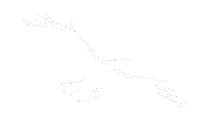
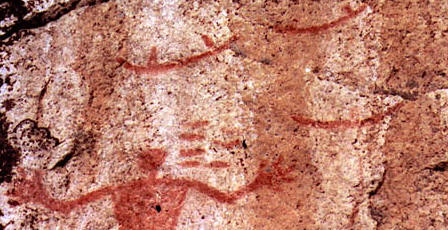
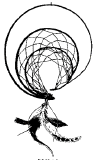
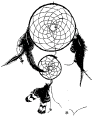
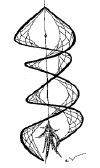


 Get
a course to promote your business online, explode your sales
Get
a course to promote your business online, explode your sales Get
software to promote your business online in less time
Get
software to promote your business online in less time Get
software to streamline your business and run it hands free.
Get
software to streamline your business and run it hands free.